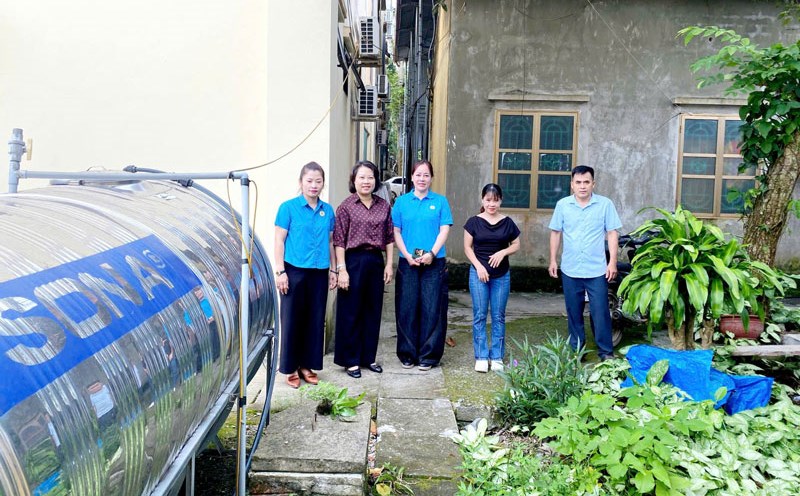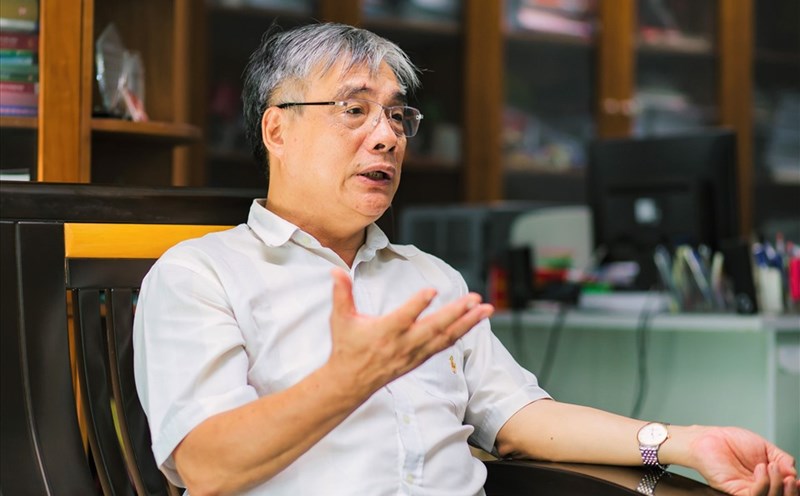Every time it is the dry season, many villages in the Thai Nguyen highlands face a shortage of domestic water. The streams are dry, the wells are dry, people have to carefully collect a small amount of water.
In Trang Xa commune, where over 80% of the population is ethnic minorities, there was a time when people had to take advantage of old bins that were left with rainwater that were not only unsanitary but also made daily activities difficult.
Changes began when Project 1 under the National Target Program 1719 was implemented, supporting water tank and pipeline systems to each disadvantaged household.


The family of Mrs. Ma Thi Thoi (Trang Xa commune) once had to connect bamboo pipes to bring water from the stream, when the stream was low, they went to get water from far away, the water source was always muddy, rotten and unsanitary.
Thanks to the support of replacing them with plastic pipes with lockers and containers, her family now has a stable water source, no longer worried about water shortages in the dry season.
Not only Trang Xa, in Khau Cum village, Vinh Thong commune, the centralized water supply project invested by the State has brought great changes to the people.
Mr. Hoang Huu Tiep shared that before, his family only used to use stream water, which poses many potential risks of unsanitary conditions, but now when opening the tap, there is clean water to serve all daily activities.
To make the project operate stably and sustainably, the village has established a water management team, regularly checking the system, fixing problems, and at the same time encouraging people to save water resources.

Information from Mr. Nong Duc Xuyen - Member of the Management Team, periodic inspection and propaganda on water resource hygiene help the project promote efficiency and connect the community in the village.
In Thuong Minh commune, many households have also escaped dependence on rainwater or streams, now there are stainless steel tanks to store water, ensuring more convenient daily activities than before.
Ms. Trieu Thi Nhi's family used to have to use buckets, pots, and plastic cans to collect rainwater, now there are safe stainless steel trays to help her family feel more secure.

According to statistics for the period 2021-2025, from the capital of Program 1719, Thai Nguyen has built 98 centralized water supply works to serve 8,649 households and supported the dispersation of 7,849 households.
The projects not only meet urgent needs for living, but also help many mountainous communes complete environmental criteria in the new rural construction program.
When there is a guaranteed water source, people can feel secure in developing livestock and growing crops safely, while contributing to improving the quality of life and protecting public health.
Previously, information from the leaders of the Department of Ethnic Minorities and Religions, the investment in a water supply system has helped people in the highlands access clean water, improving the quality of daily life.
Stable water resources not only protect public health, but also contribute to maintaining social security and creating a foundation for sustainable development for mountainous localities.

The authorities in the province identify the provision of hygienic domestic water as both a welfare policy and a political task associated with the goal of improving the lives of ethnic minorities.
In places with a centralized water supply system, the province directs the expansion of capacity, renovation, ensuring stable and long-term service quality for people.
For areas without works, the province prioritizes new investment, and at the same time issues policies to attract socialization so that the works can be operated effectively after completion.
This change has opened up a new look for the highlands, ending the lack of water and bringing safer and more sustainable living conditions to many households.








